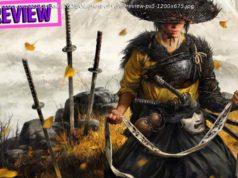The horror sequel loses something by preying on actual fears of cults and online harassment
What happens when you relocate a haunted house to an internet chat window? What happens when you renovate that house, exorcise the ghosts, and replace them with good old fashioned human cruelty?
2015’s Unfriended took the novel idea of transplanting two of horror’s classic subgenres — the slasher and the demonic possession jump-scare-a-thon — from realms tangible to a digital Hell and made it work. The film’s standalone sequel, Unfriended: Dark Web, rewires the original’s premise for with a less supernatural twist. It’s an interesting experiment that doesn’t totally work.
[ Warning: spoilers for both Unfriended and Unfriended: Dark Web]
Unfriended, directed by Levan Gabriadze, enjoys an elegantly simple conceit: Six high school friends (frenemies, really) on a Skype chat find their group joined by a mysterious seventh user, who over the next hour turns them against each other by airing their dirty laundry and spilling on their petty social betrayals, possessing them all in turn and forcing them to commit suicide via increasingly creative means. Eventually the culprit is revealed as the vengeful spirit of their dead classmate, who took her own life a year prior after being victimized by targeted bullying, and now seeks retribution from beyond the grave.
Unfriended: Dark Web, directed by Stephen Susco, tinkers with that conceit by excising the otherworldly. There’s no ghost in the machine this time, only amoral humans who torture for fun and profit.
Once again, we meet a group of friends (played by Colin Woodell, Betty Gabriel, Rebecca Rittenhouse, Andrew Lees, Connor Del Rio, Stephanie Nogueras, and Savira Windyani) who run afoul of online malevolence and get picked off one by one. As with the first film, the idea behind Unfriended: Dark Web is scary, but unlike Unfriended, the idea here should work and simply doesn’t: What’s more frightening than the realization that your every keystroke is being logged by sinister types intent on auctioning your life to the highest bidder?
Part of the problem is that the news beat the film to the punch. America’s having a bad year; we’re seeing the consequences of cybercrime at their most extreme in real time. We know what happens when that ghost in the machine is a flesh and blood person. In 2018, the thought of wicked men stalking us across the Internet should strike a fearsome chord. Instead, it’s already passé. We’ve been desensitized.
If we’re acquainted with the repercussions of malicious hacking, perhaps not personally but certainly as a nation, we’re much less familiar with the sins of our pasts coming back to wreak spectral havoc on us. Hewing to the otherworldly gives Unfriended leeway Unfriended: Dark Web lacks. Reality weighs on the latter like an anchor: The script must contrive technologically sound reasoning to facilitate the plot, requiring its characters to explain how overlay networks work, or rant about sensationalist deep web conspiracies, or reference swatting in one of the film’s convoluted kills. When they interact with their tormentors, they’re obscured by pixelation, which calls to mind The Glitch, the slasher figure in the V/H/S segment “Tuesday the 17th,” a psycho perpetually veiled by tracking errors.
Unfriended: Dark Web functions like a thriller, but it very badly wants to be mistaken for a horror film. The formula’s there: Take a handful of young actors, put them in an isolated setting, loose a heartless murderer on them, watch them all get dead.
But the hoops the film must jump through to replicate Unfriended ’s blueprint without Unfriended ’s choice of villain muddles the tension. People are subject to the rules of information age intrusion as well as geography. Demons aren’t. Demons go where they please and do whatever they damn well like, whether they’re impersonating 911 operators or compelling kids to take swan dives onto active blenders. The more that Unfriended: Dark Web tries to leverage Unfriended ’s genre liberties, the harder it becomes to take the movie seriously. Susco would have been better off staying in the haunted house.
Andy Crump is a contributor for Paste magazine, The Playlist, WBUR’s The ARTery, Slant Magazine, The Hollywood Reporter, and Birth. Movies. Death., and is a member of the Online Film Critics Society and the Boston Online Film Critics Association. Follow him on Twitter @agracru.






![Działo się w czwartek. Oto najważniejsze wydarzenia [SKRÓT DNIA]](http://nhub.news/wp-content/uploads/2025/09/thumb1ca449a5a8af91014ce58a961009a024-100x75.jpeg)